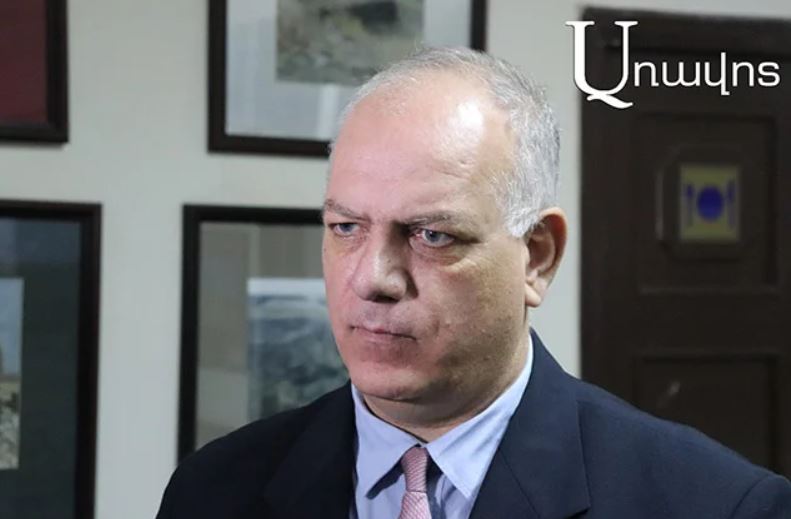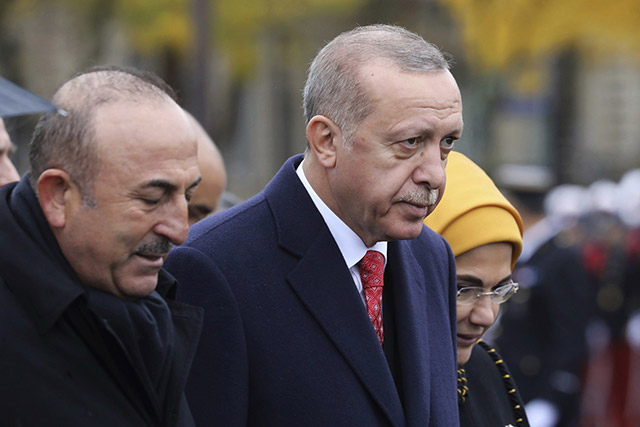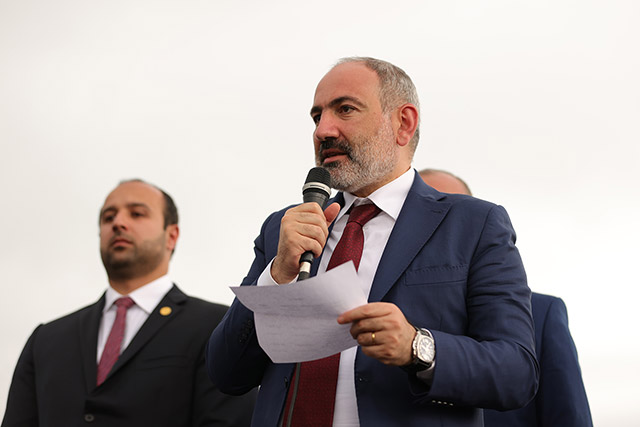“Today’s actions by Turkey do not mean that it is establishing diplomatic relations with us. Let everyone understand this once and for all,” political analyst Vazgen Petrosyan told Aravot, referring to the start of the Armenian-Turkish dialogue. “Besides, when do negotiations with the enemy start in international relations? When you have to do it, when you imitate negotiations, or when your enemy is too weak. Due to the current authorities, today Armenia has become a weak tool, a coin that the big powers have thrown on the table. That is why it is the most convenient moment for Turkey to present its centuries-old demands to the Armenians and snatch them from us,” Vazgen Petrosyan said.
According to him, “At the same time, if Turkey can even snatch something, it is not the end. That could be the beginning of the end. If the illegitimate authorities sign something, it can be brought back, but at a high price. I think Erdogan would not even dream of a government like ours today that fulfills all his wishes. This power is fully implemented by them, so why not go to negotiations?” Armenia and Turkey have stated at the level of the Foreign Ministry that the talks between the two countries with the participation of special representatives are being held without preconditions. In this regard, Petrosyan asked what without preconditions means. “Simply put, Armenia renounces the recognition of the Armenian Genocide and recognizes the territorial integrity of Turkey, and thus renounces Western Armenia, Artsakh, its security, and sovereignty. These are all preconditions. If we give up on these, what else do we want? The Turks achieve all their desires thanks to this government.” We reminded him of one of the recent statements made by Prime Minister Nikol Pashinyan that no Armenian government has ever had territorial claims against Turkey.
Vazgen Petrosyan mentioned, “He does not understand what international relations are. For example, the government talks a lot more than before. If the former were bad, if their decisions are treacherous, and this government does the same, it means that it is bad, that it is also a traitor and does not understand what security is. In international relations, issues are formulated in a slightly different way. When the Jews demanded recognition of the Holocaust from Germany, the issue of reparations was raised immediately afterwards. Our previous government, realizing or convincing itself that they were unable to make territorial claims to Turkey, emphasized the international recognition of the Armenian Genocide, hoping that some situation would follow. There was also a demand for recognition by Turkey. Now, if the previous government made a mistake, does this government have the right to make the same mistake? No. If it does, then there is no difference between them. Why do we put it in black and white, past-present? Everyone is the same.”
We also reminded him that in the debates on this topic, it is sometimes asserted that “you say that the Turks will come to kill us so often, did they?” What is the direct or indirect threat from Turkey? Vazgen Petrosyan answered, “Turkey can not make a direct threat against Armenia at the moment… secondly, if those who speak like that did not have family members get slaughtered, then was Gurgen Margaryan’s murder not slaughter? A soldier is killed at the border, isn’t that slaughter? Does it have to be the situation of 1915 for them to see?
Read also
Those who think like that are not much different from Grigor Zohrap’s thinking. When Zohrap was taken to be killed, he asked if Talaat was aware.
His head was crushed with a stone. If he were alive, would he ask the same question or would he take up arms? If today’s authorities can not learn from history, the blame is on them.”
Luiza Sukiasyan






















































